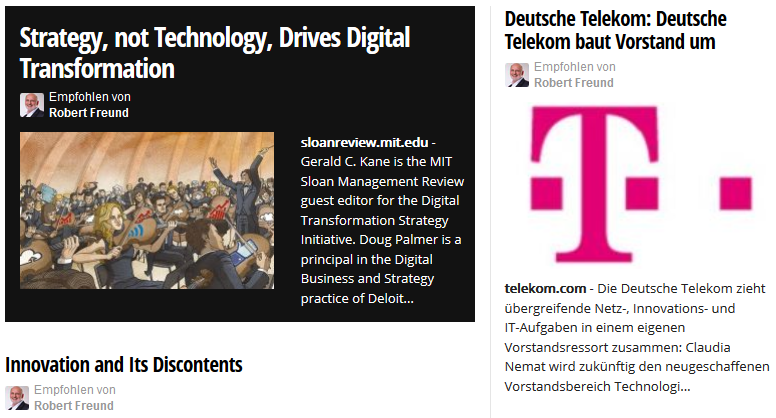EU hebt Komplexität im Innovationssystem hervor
In der Veröffentlichung European Union (2016): Opportunity now: Europe’s mission to innovate (PDF, 7.5MB)) stellt die Europäische Union dar, wie wichtig Innovationen sind. Darüber hinaus wird auch darauf verwiesen, dass ein Innovationsmanagementsystem heute komplex ist (Seite 18);
Innovation is also more complex than ever. Complexity, chaos and non-linearity have been
seen since the 1970s as the defining features of our age. But still our advanced societies find it hard to make robust policy for a complex innovation system. A complex system is a place where:
- no one can have a complete map of the actors and forces at play,
- the system’s behaviour is not simply the sum of the behaviour of those parts,
- feedback loops surprise us and change the behaviour of the system,
- the system is “autopoietic”: behaving in a self-driven way and not just in ways we have yet to understand.
Das bisher übliche Pipeline-Modell (Trichter-Modell) muss weiterentwickelt werden, indem es zunächst semipermeabel wird (halbdurchlässig). Neuere Ansätze wie Open Innovation (Chesbrough 2003) zeigen darüber hinaus neue Ansätze auf. Organisationen sollten daher frühzeitig solche Entwicklungen aufnehmen, um zu lernen. Selbstorganisiertes Lernen ist dabei ein Kernelement der Veränderungsbereitschaft von Individuen, Gruppen, Organisationen und Netzwerken. Die so gewonnene Agilität stärkt Organisationen für heutige und zukünftige Herausforderungen. Solche Zusammenhänge besprechen wir auch in dem von uns entwickelten Blended Learning Lehrgang Innovationsmanager (IHK). Hinweise zu unseren Blended Learning Lehrgängen finden Sie auf unserer Lernplattform.


